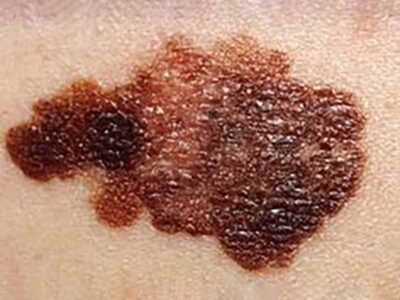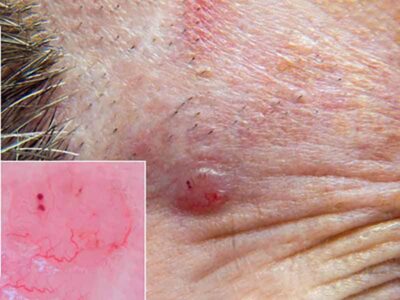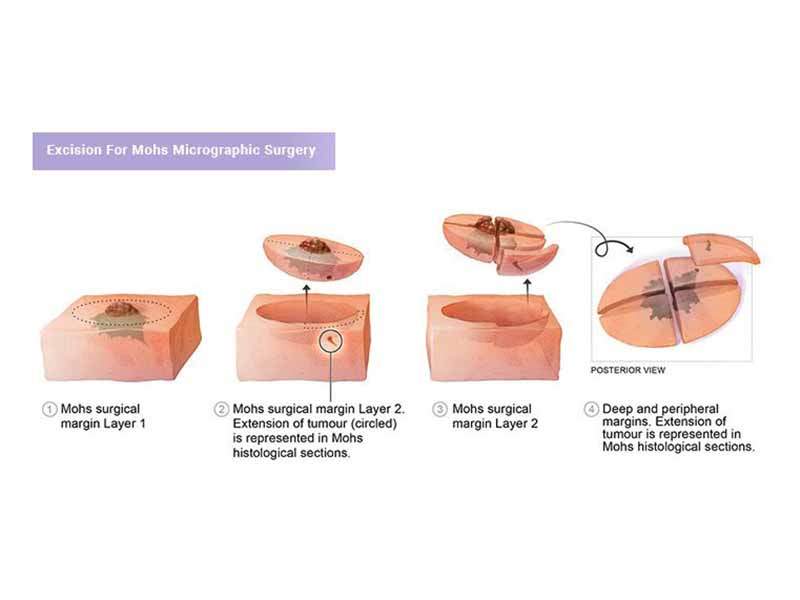Conditions Treated
Skin Cancer
Melanoma
 Melanoma is one of the most dangerous forms of skin cancer but promising new skin cancer treatment options are improving quality of life and increasing survival rates for patients with advanced melanoma.
Melanoma is one of the most dangerous forms of skin cancer but promising new skin cancer treatment options are improving quality of life and increasing survival rates for patients with advanced melanoma.
If you’ve been diagnosed with Melanoma, your treatment choices depend on the stage of the disease, the location of the tumor and your overall health. Make sure you contact us to get professional advise.
Basal Cell Carcinoma & Squamous Cell Carcinoma
 A basal cell carcinoma (BCC) is a type of skin cancer. BCC is a non-melanoma skin cancer, and is the most common type (greater than 80%) of all skin cancer in the United States. BCCs are sometimes referred to as ‘rodent ulcers’.
A basal cell carcinoma (BCC) is a type of skin cancer. BCC is a non-melanoma skin cancer, and is the most common type (greater than 80%) of all skin cancer in the United States. BCCs are sometimes referred to as ‘rodent ulcers’.
A squamous cell carcinoma is a type of skin cancer. Squamous cell carcinoma (SCC) is a non-melanoma skin cancer (NMSC), and the second most common type of skin cancer in the United States. NMSC accounts for 20% of all cancers and 90% of all skin cancers. SCC accounts for 23% of all NMSC.
When found early, most basal cell carcinomas (BCCs) can be treated and cured. Prompt treatment is vital, because as the tumor grows, it becomes more dangerous and potentially disfiguring. Sometimes this requires more extensive treatment. Certain rare, aggressive forms can be fatal if not treated quickly.
If you’ve been diagnosed with a small or early BCC, a number of effective treatments can usually be performed in the office, using a local anesthetic with minimal pain. Afterwards, most wounds can heal naturally, leaving minimal scarring.
Most squamous cell carcinomas (SCCs) of the skin can be cured when found and treated early. Treatment should happen as soon as possible. Advanced SCCs of the skin are more difficult to treat and can become dangerous.
If you’ve been diagnosed with an SCC that has not spread, there are several effective treatments that can usually be performed on an outpatient basis. The choices available to you depend on the tumor type, size, location and depth, as well as your age and overall health.
Skin Cancer Treatment Options
Ask your dermatologist to clearly explain the options that might work best for you, including details about the risks and benefits.
 If you require skin cancer treatment, please call the Skin Cancer Treatment Center at 954-436-5625 to schedule a time for your treatment.
If you require skin cancer treatment, please call the Skin Cancer Treatment Center at 954-436-5625 to schedule a time for your treatment.
Treatment options include:
- Excisional surgery
- Curettage and electrodesiccation (electrosurgery)
- Mohs surgery
- Radiation therapy
- Photodynamic therapy
- Cryosurgery
- Laser surgery
- Topical medications
- Oral medications for advanced BCC and immunotherapy for SCC.
Mohs Surgery
Mohs micrographic surgery is a specialized surgical method for removing certain types of skin cancer. It was first developed by Dr. Frederic Mohs in the 1930s.
Traditional skin cancer operations involve the removal of cancer done with a cut that takes a predefined area of healthy unaffected skin around and below the skin cancer (a safety margin) in order to ensure that the entire cancer has been completely removed. This excision is then sent to a laboratory for examination by a pathologist (a doctor who specializes in medical diagnosis by looking at the cells with a microscope) to confirm whether the operation has been successful or not.
It usually takes about 2 weeks for a pathology report to become available. If the report shows that the skin cancer has not been fully removed, a further procedure may be necessary.
During the procedure of Mohs micrographic surgery, the skin cancer is removed a thin layer at a time with a small margin of healthy skin surrounding it. Each layer is immediately checked under the microscope by either the surgeon or a pathologist. The layer of skin is examined in horizontal sections. A further layer is taken from any areas in which the tumor remains until all of the skin cancer has been fully removed.
The advantage of removing the skin layer by layer in this way is that as little healthy skin around the skin cancer is removed, which keeps the wound as small as possible. Secondly, your dermatological surgeon can be almost certain that the skin cancer is fully removed on the day of the procedure.
If you have a cancer that requires a Mohs Surgery and are looking for a dermatology practice that specializes in Mohs Surgery, please call the Skin Cancer Treatment Center at 954-436-5625 to schedule an appointment with one of our expert doctors.
Clinical Dermatology
Here at the Skin Cancer Treatment Center, we are experts in treating many dermatological conditions, including but not limited to the following:
 Acne
Acne- Actinic keratoses (also known as solar keratosis)
- Age spots / lentigos
- Atopic dermatitis / eczema
- Atypical moles / birthmarks / melanocytic naevi (moles)
- Contact dermatitis
- Cryotherapy
- Cysts
- Fungal infections
- Hyperpigmentation (melasma)
- Hypopigmentation (vitiligo and albinism)
- Photodynamic therapy (pdt)
- Psoriasis
- Rashes
- Rosacea
- Dandruff / seborrheic dermatitis
- Skin growths / seborrheic keratosis (sk)
- Skin tags
- Sun damage and sunburn
- Warts and molluscum
- Wound care
- Hair Loss




